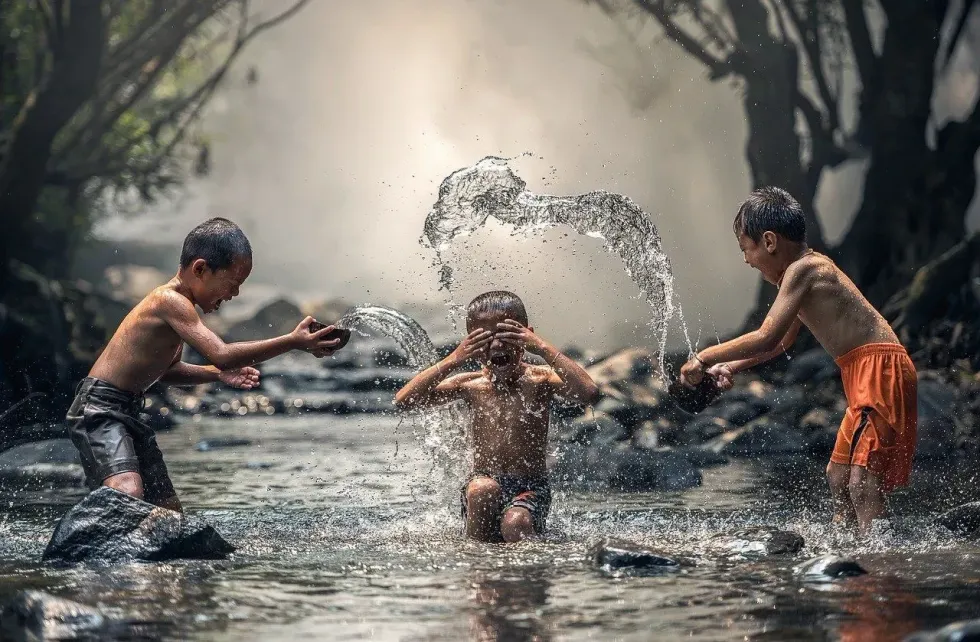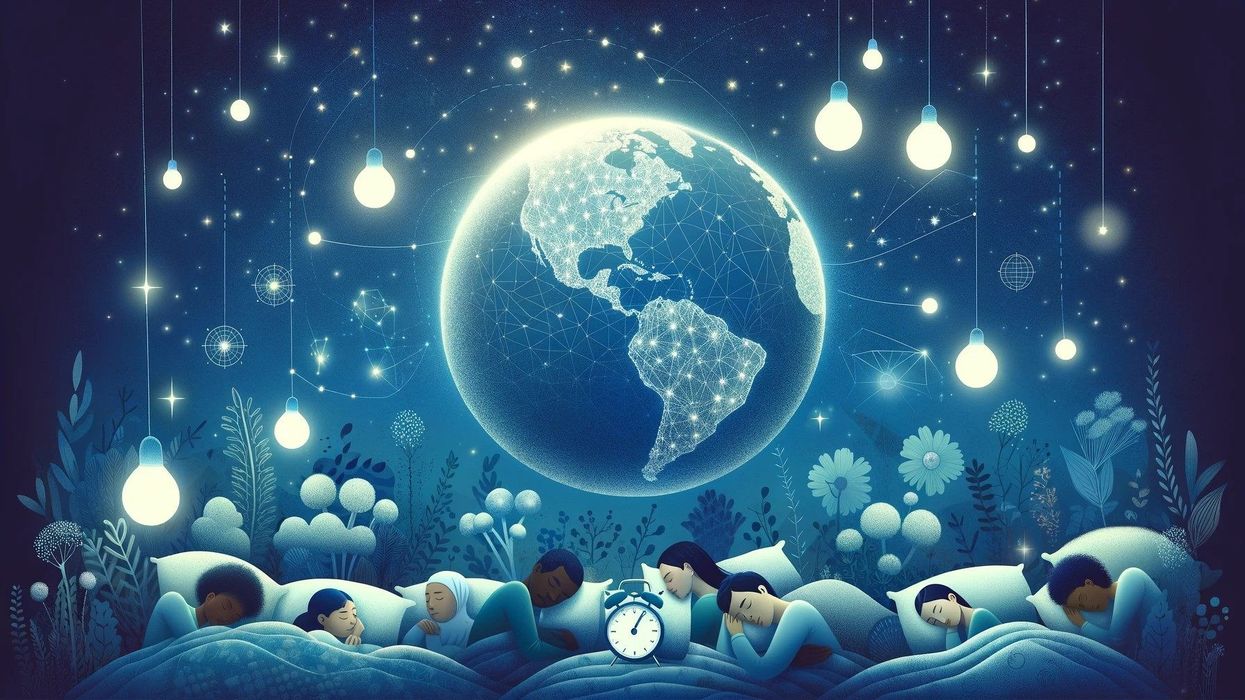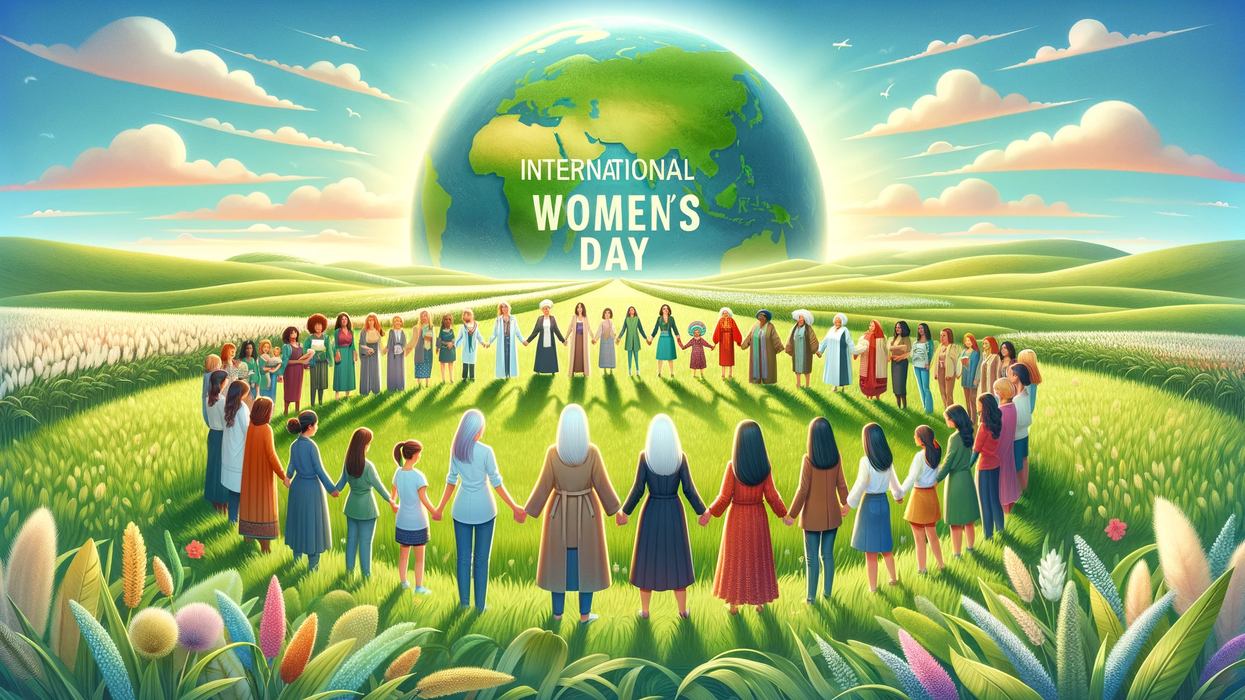March 22, 2024
Location: Worldwide
World Water Day is a time to focus on the importance of water, a basic need for life. The United Nations General Assembly started it in 1993 to bring attention to the ongoing worldwide water crisis. It aims to highlight urgent issues like the lack of water and water pollution and encourage steps toward taking good care of freshwater supplies.
This day was created in response to growing worries about keeping water safe and the need for countries to work together to solve these problems. It stresses how essential water is for sustaining life, supporting nature, and advancing human progress.
By raising awareness and encouraging action, World Water Day supports the global endeavor to secure adequate water for all, aligning with the United Nations' sustainable development goals. As the day unfolds, World Water Day calls for communities to unite in pursuit of a future where water is readily available, clean, and accessible to everyone, regardless of location.
Where is World Water Day celebrated?

World Water Day is celebrated globally, with events and activities taking place in numerous countries around the world. It is observed by all of the United Nations member states as well as individuals, organizations, and governments.
The official celebrations of World Water Day often take place at significant locations, such as the UNESCO headquarters in Paris, as is the case for the 2024 theme 'Leveraging Water For Peace'. Additionally, member states and various organizations host localized events in cities like New York and Geneva, supported by entities like the Water Convention Secretariat and UN-Water.
Who is World Water Day celebrated by?
World Water Day is celebrated by people and organizations worldwide, including all United Nations member states.
The day is observed by a diverse range of participants, from non-governmental organizations active in the water, sanitation, and hygiene (WASH) sector, such as UNICEF, WaterAid, and Water and Sanitation for the Urban Poor (WSUP), to educational institutions, governments, and civil society coalitions.
These groups use World Water Day to raise public awareness, inspire action, and get media attention for water issues.
When did World Water Day first start?
 Shutterstock
ShutterstockWorld Water Day was first celebrated on March 22, 1993. The idea for this international day was formally proposed in Agenda 21 of the 1992 United Nations Conference on Environment and Development in Rio de Janeiro.
Who started World Water Day?
World Water Day originated from the United Nations' decision. The idea for this special day was first suggested at the 1992 United Nations Conference on Environment and Development (UNCED), held in Rio de Janeiro.
Following this proposal, the United Nations General Assembly adopted resolution A/RES/47/193 on December 22, 1992, which declared March 22 of each year as World Water Day, starting from 1993.
History And Timeline

Agenda 21 Proposal
The idea for World Water Day was first formally proposed in Chapter 18 (Fresh Water Resources) of Agenda 21 at the 1992 United Nations Conference on Environment and Development in Rio de Janeiro.
1992
UN Resolution Adoption
The United Nations General Assembly adopted resolution A/RES/47/193, officially declaring March 22 as World Water Day, to be observed starting in 1993.
December 22, 1992
First Celebration
The inaugural World Water Day was observed globally, marking the beginning of an annual event to raise awareness of water issues.
March 22, 1993
Water for Life Decade
The United Nations General Assembly proclaimed the period 2005–2015 as the International Decade for Action 'Water for Life' on December 23, 2003, aiming to promote efforts towards water sustainability.
1997
Human Right to Water
On July 28, 2010, the United Nations General Assembly, through Resolution A/RES/64/292, declared safe and clean drinking water and sanitation a human right essential to the full enjoyment of life and all other human rights.
2010
Climate Change Focus
World Water Day 2020 highlighted the links between water and climate change, advocating for strategies to limit its direct impact on water resources.
2020
Water for Peace
World Water Day 2024 was celebrated with the theme 'Leveraging Water For Peace', focusing on the role of water in fostering global harmony.
March 22, 2024
Traditions And Customs
The traditions and customs associated with World Water Day involve a variety of activities aimed at raising awareness and advocating for sustainable water management practices. These traditions are not fixed rituals but rather actions that align with the goals of the day, such as educational programs, public campaigns, and community events.
Organizations and individuals organize seminars and expositions and engage in social media campaigns to spread knowledge and inspire action. Fundraising events are also common to support water projects and improve access to clean water and sanitation in underprivileged communities.
Ways To Observe Or Celebrate World Water Day

To observe or celebrate World Water Day, individuals and organizations can engage in various activities that highlight the importance of freshwater and advocate for the sustainable management of water resources. These can include participating in local clean-up efforts and attending or hosting educational workshops and seminars.
People can also spread awareness through social media campaigns, share water-saving tips, and encourage the implementation of water-efficient practices in their communities and workplaces. Additionally, many use this day to support charities and non-profits that work towards providing clean water access to those in need.
World Water Day Facts And Stats
- Over 2.2 billion people worldwide do not have access to safe drinking water, highlighting the scale of the water problem and the need for immediate action to ensure water security for everyone.
- The United Nations stresses the role of cooperation agreements and political dialogue in water management, acknowledging water's potential to both cause conflict and promote peace.
- 60% of the world's freshwater flows come from transboundary waters, requiring international cooperation in water management.
- The water problem has serious economic consequences, with inadequate water and sanitation facilities resulting in billions of dollars in lost economic opportunities.
- World Water Day focuses on various themes each year, addressing different aspects of water conservation, management, and crisis. For instance, the theme for World Water Day 2024 is 'Leveraging Water For Peace',
- World Water Day activities and events include educational programs, community clean-ups, social media campaigns, and water project funding.
World Water Day FAQs
Can individual actions really make a difference in conserving water?
Yes, individual actions can significantly contribute to conserving water. Simple steps like fixing leaks, turning off the tap while brushing teeth, taking shorter showers, using water-efficient appliances, and practicing rainwater harvesting can reduce water waste.
When many people adopt water-saving practices, it leads to a substantial collective impact, helping to conserve water resources and reduce strain on supply.
Why is managing climate change important for water resources?
Managing climate change is crucial for water resources because it affects water availability, quality, and demand. Climate change leads to more extreme weather events like floods and droughts, impacting water-stressed regions. Nations must adapt and mitigate climate change to ensure a stable and sufficient water supply for all.
How does the World Health Organization (WHO) contribute to World Water Day?
The World Health Organization (WHO) plays a significant role in World Water Day by promoting public health aspects related to water. WHO focuses on improving water quality, enhancing sanitation and hygiene, and preventing waterborne diseases. The organization works globally to ensure that people have access to safe and clean water, contributing to the fight against the global water crisis.
What are the major global issues related to water?
Major global issues related to water include the scarcity of clean drinking water, inadequate sanitation facilities, pollution of water bodies, and the impact of climate change on water resources. These challenges contribute to the global water crisis, affecting billions of people's health, livelihoods, and well-being.
How can nations ensure fair and sustainable use of water?
Nations can ensure fair and sustainable use of water by adopting integrated water resources management practices, establishing transboundary water cooperation, and implementing policies that prioritize equitable access to water. This involves balancing water use between different sectors and ensuring that water management practices contribute to peace and stability.
What role does the United Nations Economic Commission (UNECE) play in addressing water issues?
The United Nations Economic Commission (UNECE) plays a major role in addressing water issues by promoting cooperation among countries over shared water resources. The organization supports the implementation of the Water Convention. This in turn aims to protect and use transboundary watercourses and lakes sustainably and equitably. UNECE's efforts help prevent conflicts over water and promote peace and development
How does water quality impact global health?
Water quality directly impacts global health, as contaminated water can lead to waterborne diseases such as cholera, dysentery, and typhoid, which are major health concerns worldwide.
Ensuring access to clean and safe drinking water is a priority for the World Health Organization and other entities, as it is essential for preventing diseases and improving overall health outcomes. Improving water quality is a critical step in addressing the global water crisis and achieving sustainable development goals.
What is the importance of World Water Day in solving water-related issues?
World Water Day helps to address water-related concerns by bringing together nations, organizations, and individuals to highlight the importance of freshwater and the need for sustainable management.
It is a call to action to address key worldwide issues such as the global water crisis, water quality, and the effects of climate change on freshwater supplies.
Follow On Social Media
Join the global efforts to raise awareness about water-related issues and celebrate World Water Day by using these popular hashtags:
Twitter Hashtag: #WorldWaterDay #WaterForPeace #WaterIsLife #SustainableWater
Instagram Hashtag: #WorldWaterDay #WaterForPeace #ProtectEveryDrop #ValueWater #CleanWaterForAll.
When is this day celebrated?
03/22/2024, Friday
03/22/2025, Saturday
03/22/2026, Sunday
03/22/2027, Monday
03/22/2028, Wednesday
World Water Day is an important celebration that brings together global efforts to solve the global issue of water scarcity, as well as the broader implications of water management for health, peace, and sustainability.
This day encourages individuals, communities, and governments to recognize the importance of freshwater, promote sustainable use of water resources, and take action to address the global water crisis.
World Water Day seeks to ensure that future generations inherit a world where every individual has access to clean and safe water, emphasizing the essential role water plays in the planet's health and that of its inhabitants.
Related Articles Around the Web





 Shutterstock
Shutterstock






